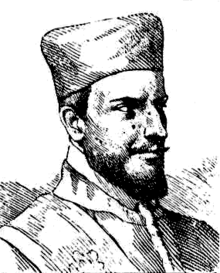
Francesco Cavalli was born in Crema, in the Venetian Republic, in 1602, and was, after Monteverdi, the most important musician of the 17th century.His real name was Pietro Francesco Caletti-Bruni. He began his own musical studies with his father G. B. Caletti Bruni, maestro of Crema’s Cathedral Chapel. He acquired the surname Cavalli later in honour of his patron, the noble Venetian, Federico Cavalli, who, after being elected Governor of Crema in 1614, returned to Venice in 1616, taking with him the young Caletti whose inclination for musical art had aroused his interests. Admitted as a chorister in 1617 at the Chapel of St Mark, he became the pupil of the director, Claudio Monteverdi.
In the following years, he was engaged first as a tenor, then he became second organist, then first organist before being appointed maestro of the Ducal Chapel in 1668, a role he fulfilled until his death in 1676.
He wrote a great many operas for the most important Venetian theatres of the time. In 1660 he was summoned to Paris for the occasion of the wedding of Louis XIV. He stayed in the French capital for the following two years where he had the opportunity to perform, in the presence of the King, two of his most important operas: Xerses and L’ercole amante.
With the opening of numerous public theatres in Venice, the first being the San Cassiano Theatre in 1637, Cavalli was the first to transform the melodrama of the aristocratic show into popular entertainment. The Maestro created the Baroque Venetian opera where drama, tragedy and comedy mixed together.
He is merited with having given to the arias a mostly functional structure, a more elegant form, more accurate in the timbric details, with richer harmonies, modulation and instrumentation.
He also wrote a notable amount of compositions on sacred texts. Francesco Cavalli died in Venice in 1676.
Still today, his operas are performed in some of the world’s most important theatres, among them, in particular, the La Monnai Theatre in Brussels.
Lyrical Operas
He composed around 40 lyrical operas, amond them:
- Le Nozze di Teti e di Peleo (1639)
- La Didone (1641)
- Il Giasone (1649)
- La Calisto 1651], Xerse (1655)
- Ipermnestra (1658)
- L’Ercole amante (1662)
- Scipione l’Africano (1664).





